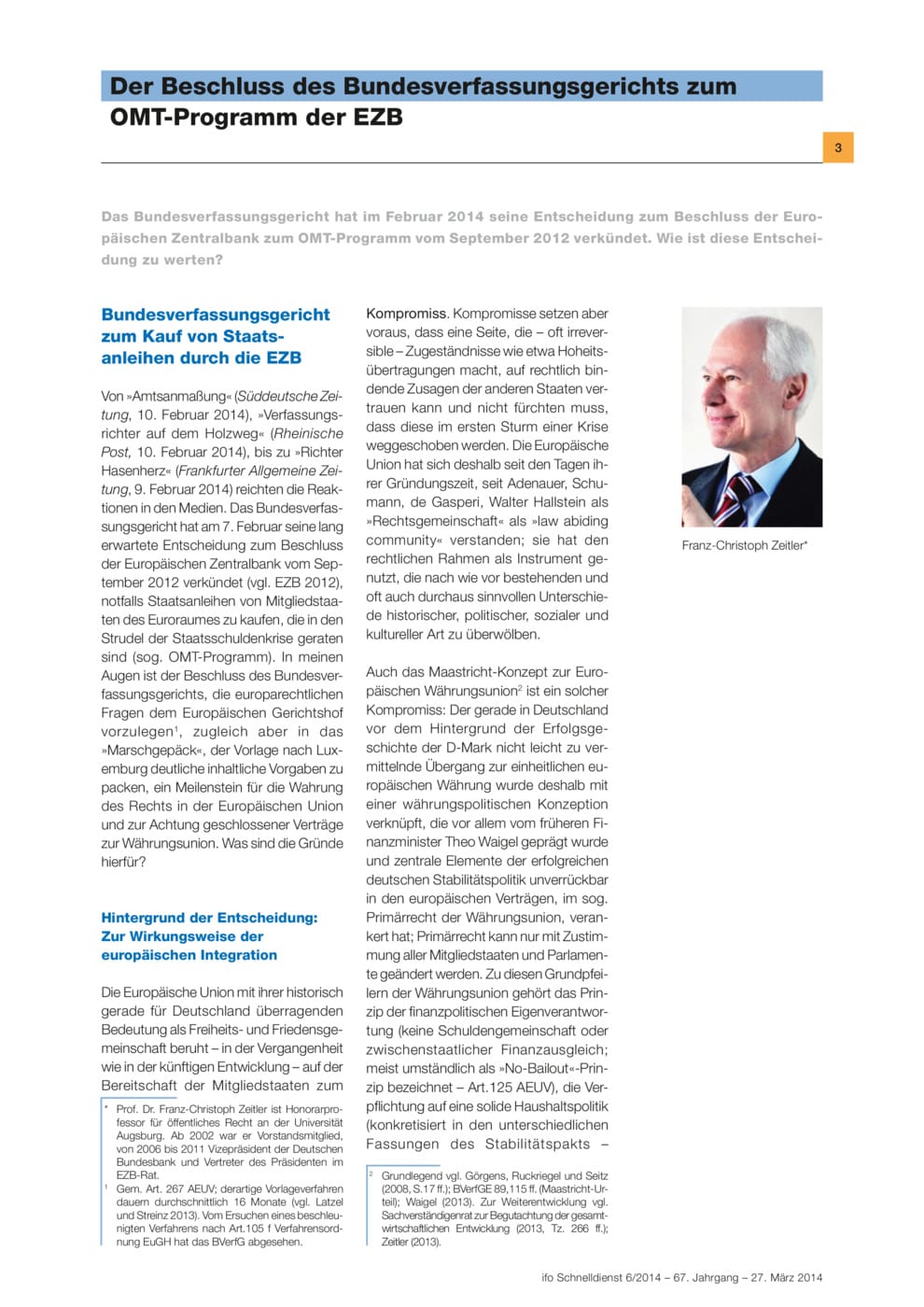The German Constitutional Court’s Ruling on the ECB’s OMT Programme
ifo Institut, München, 2014
ifo Schnelldienst, 2014, 67, Nr. 06, 03-25

In February 2014 the German Constitutional Court gave its ruling on the European Central Bank’s decision of September 2012 to implement the OMT programme. How is this decision to be interpreted? Franz-Christoph Zeitler, University of Augsburg and formerly of the Deutsche Bundesbank, sees the Constitutional Court’s ruling to bring the OMT-related European legal issues before the European Court of Justice - but at the same time “to include clear content guidelines in the ‘field pack’ of documents bound for Luxemburg - as a milestone in defending the rule of law within the European Union and upholding the treaties signed on monetary union”. In its evaluation of the contents of the ECB’s government bond acquisition programme, the German Constitutional Court largely champions central points of criticism that were also raised by Bundesbank President Weidmann and other experts, as well as by the plaintiffs, in the court hearing. Marcel Fratzscher, Deutsches Institut für Wirtschaftsforschung (DIW), Berlin, sees the danger of a division of Europe. At first glance the German Constitutional Court only seems to have decided on technical issues related to the instruments that the European Central Bank is permitted to use. However, the unity of Europe is at stake. The ruling threatens to divide Europe. The debate also shows that there is still a lack of consensus as to the detailed picture of what a monetary union should look like or what is needed to make the process of European integration sustainable. Dietrich Murswiek, University of Freiburg, believes that the Constitutional Court’s ruling confirms the view that the ECB’s OMT programme is unlawful and that the ECB is overstepping its remit. In the opinion of Manfred J.M. Neumann, University of Bonn, the Constitutional Court has adopted “a clever strategy” in its ruling on the constitutional admissibility of the OMT government bond acquisition process. It has neither rejected the constitutional complaints as inadmissible, nor has it rejected the programme as a legal act beyond the scope of the ECB’s powers (ultra vires act) over the head of the European Court of Justice, which would have forced the German government and the Bundestag to take action. The Constitutional Court envisions declaring the OMT programme as legally unobjectionable provided that it is modified so that the conditionality of the European bailout programmes to date is not subverted, and that the programme retains the character of a purely supportive measure of economic policy in the European Union. Markus C. Kerber, Technical University of Berlin, offers an appraisal of the compatibility of ECB measures with EU law.